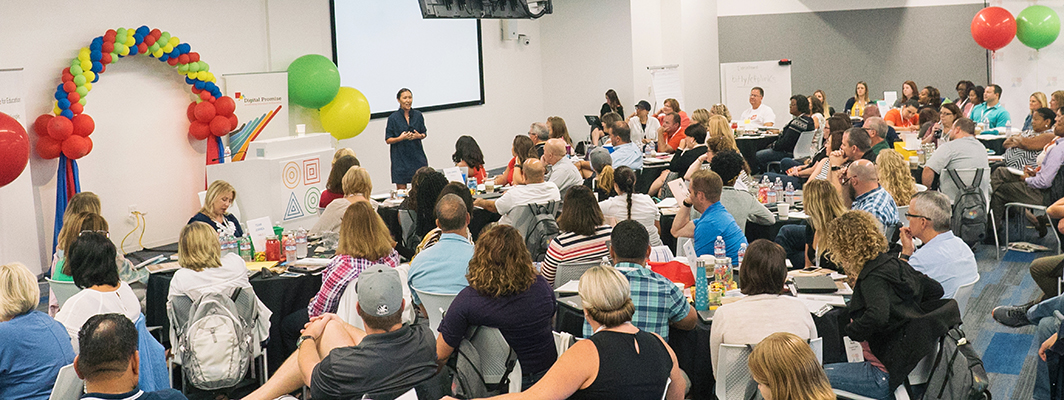
There are pockets of inspiration and excellence where students and teachers are leveraging technology to solve complex problems, work with big data sets, connect across borders, access experts, collaborate with peers, and engage in compelling projects. These learning scenarios support the development of skills such as critical thinking, inquiry and research, creativity, problem solving, designing and collaboration. They help students develop a sense of agency, the ability to harness technology, and support learning lifelong and lifewide.
However, in other scenarios, students are engaged with lower-level uses of technology such as test preparation, reading static online content, and seemingly endless drill and practice exercises. This is leading to an emerging “second level digital divide” in US schools, fueled by differences in how technology is utilized to advance teaching and learning. This dichotomy is especially pronounced in underserved schools.
To close this divide, we must fully support educators with the skills and tools they need to power up the learning environment. While there are many ways that teachers develop their competencies, one research backed strategy is classroom coaching. And, while there is limited research on coaching specifically for supporting powerful use of technology, early research studies point to the positive impact of educator coaching(1) on teacher practices and student achievement.
To learn more, we commissioned Stanford University’s Center to Support Excellence in Teaching to conduct a literature review to ground our understanding of the existing research. You can read the full report here, but our review of published studies suggests that in order for coaching to improve the use of technology for teaching and learning, coaches, teachers, and principals must view coaching as a partnership, and empower each other to leverage technology to support more effective teaching practices and improve students higher order skill development.
Coaching, unlike a single day professional development session, provides sustained and specific support and collaboration. Most known in athletics and business, coaching can be a promising educator professional development strategy. How coaching is best practiced and how it increases the more powerful, not passive, use of technology for teaching and learning is a topic we will be exploring over the next year. With generous support from Google, we are launching the Dynamic Learning Project, a pilot with 50 U.S. schools. Each school will be provided a coaching fellow who will offer personalized classroom based coaching to help educators in their community leverage technology in transformative ways. These full-time coaches will receive mentoring support from the experts at EdTechTeam.
Our grounding research question for this project is: What are the conditions necessary for classroom coaching to effectively foster more powerful use of technology for teaching and learning? To answer that question, throughout the year, we will be surveying coaches, principals, teachers, and students and conducting more in depth case studies with several participating schools.
Our teams are motivated and inspired by the possibility of deepening understanding of the best ways to coach and support teachers so that we can close the digital learning gap by meaningfully and powerfully integrating technology into teaching and learning.
You can learn more about the Dynamic Learning Project here. If you are interested in your school participating in the program, visit DynamicLearningProject.com.